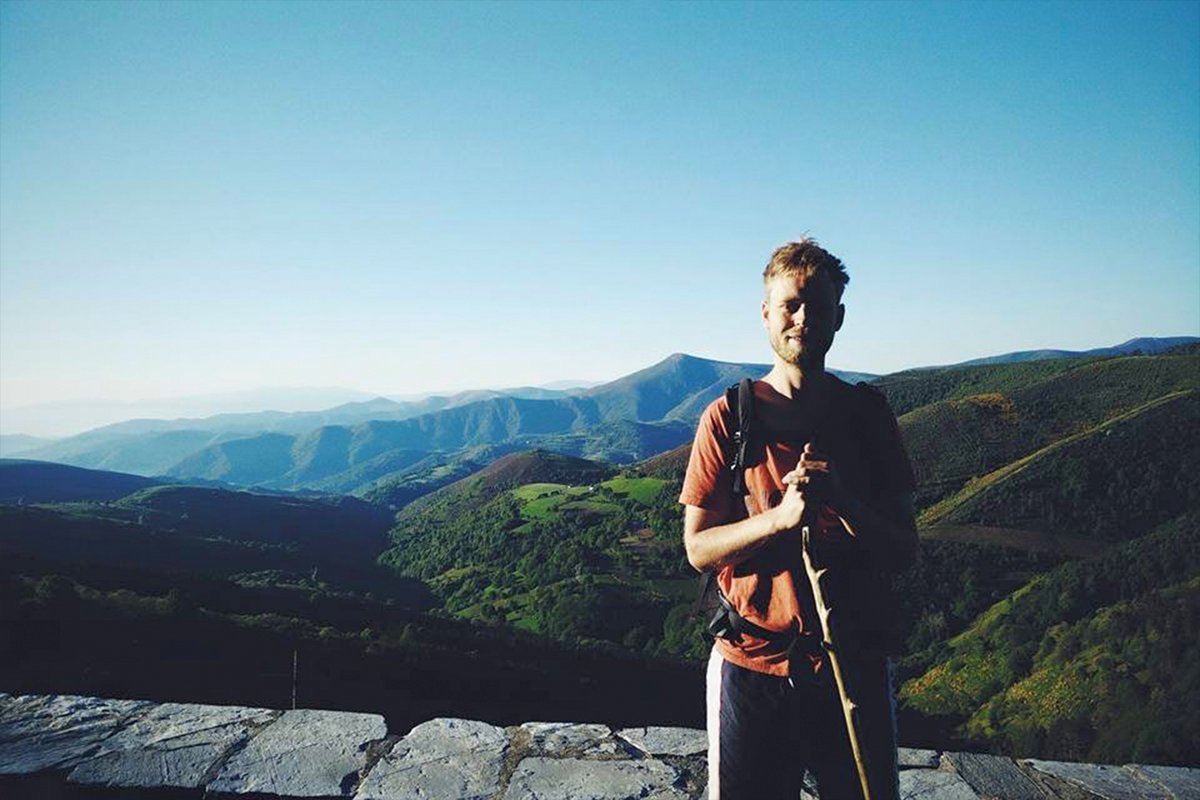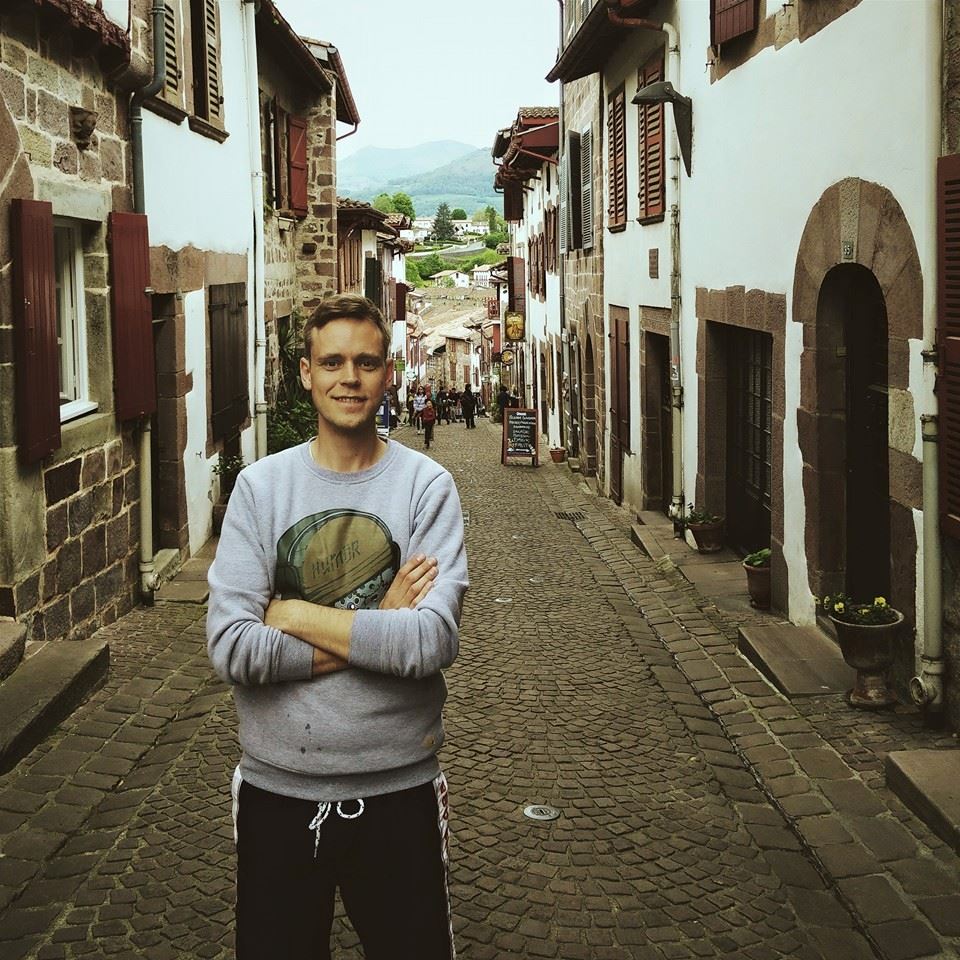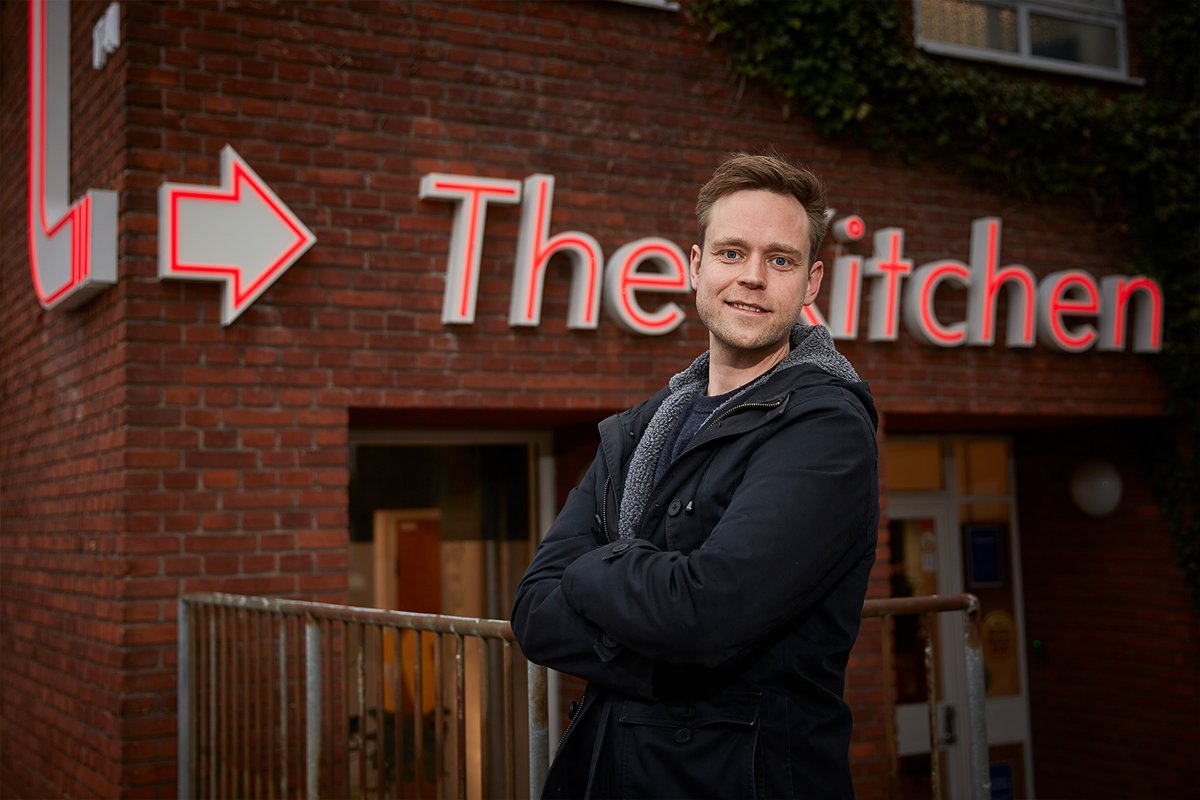13 May 2015. San Juan de Ortega, Spain.
"You young people are far too dependent on your phones," said a middle-aged lady in broken English who was hanging out at the bar when Jacob, with his phone in hand, begged the bartender for help to get the Wi-Fi working.
Jacob was getting desperate.
He had already hiked 23 kilometres in mountainous terrain since he got up at 05:30. Now it was just after 11:30 in the morning, and his legs were getting very heavy.
He glanced at the clock. Twenty-five minutes left.
At noon, he had an online meeting that could change his entire future. But where on earth, in this sleepy medieval landscape, far away from everything and in the middle of the Camino, could he find internet reception? San Juan de Ortega was the only option now, but the small town – if you could even call it that – only consisted of a couple of houses and a monastery. And Bar Marcela.
"It's really important," he begged.
"Yes yes, it's always important," the lady mumbled and rolled her eyes, while the bartender left to check the router.
The plan had been to take a rest, get a cold drink and prepare mentally for the meeting. Then hold the meeting with his legs up in a comfy armchair. But he couldn't get the internet to work on his phone, and now he was praying that the bartender had a couple of tricks up his sleeve.
The bartender came back. He shook his head. Too bad: There was no internet in San Juan de Ortega that day.
Jacob Høxbroe Jeppesen has an MSc in electrical engineering and has a PhD in computer engineering from Aarhus University. He shares his working hours between his position as a postdoc at Aarhus University and as the CEO of his startup company Atla.ai.
Atla.ai operates in the exciting world of space technology, and now the company – and Jacob – has received almost DKK 400,000 (EUR 50.000) from the European Space Agency’s business incubation programme, ESA BIC Denmark.
Space technology. It may sound fancy and rare, but it is not.
"This is an area making huge advances," explains Jacob, whose company makes its money from analysing large amounts of satellite data using artificial intelligence:
"There’s been a huge shift in the way in which we use data. After ESA launched a number of satellites over the past 7-8 years, satellite data has gone from expensive to free, and everyone has access to it.
(Article continues below the picture)

But it is not just because satellite data has become free. The way in which data is used has also changed significantly within a very short period of time. And there is great potential for further development:
"You can store much more data today, and the analyses can be made much more advanced using machine learning and artificial intelligence," he says.
The seeds of Atla.ai were sowed in Jacob’s PhD project, in which he worked with a data platform for the agricultural sector in the large Future Cropping research project. This was where he spotted the possibilities of satellite data and cloud computing.
But had it not been for a friendly Canadian, the company would probably never have got off the ground.
8 May 2015. Logroño, Spain.
Jacob enjoyed his evening eating tapas and drinking cold beer. The evening turned out to be even better when Jacob checked his email; the one time during the day he allowed himself to turn on his phone on his long hike.
He had received a short email from a Thomas Toftegaard from the Department of Engineering at Aarhus University. Thomas wrote something about the possibility of a PhD position, and whether Jacob would be interested in it. If so, they could talk over a Skype meeting with Rune Hylsberg Jacobsen, an associate professor at AU.
Jacob was beside himself. He had tried to get a PhD twice before, but both times the projects fell apart before he even started.
The first time he applied, he was sure that the position was in the bag, but at the very last moment, he was told that there was no funding after all. And the second time, the final details of the project had been agreed, and Jacob was ready to start, but again the project fell through at the last minute.
Jacob then went off to Spain to walk the 778-kilometre-long pilgrimage Camino De Santiago. Just to get away from it all.
Was this to be third time lucky? At least the meeting was now in place, and five days later, on 13 May 2015, they were to meet on Skype and talk about the position at 12 noon: ”Hell yeah,” Jacob thought as he sipped his beer. Life could hardly be better.
(Article continues below the picture)

Jacob's methods of data analysis within the agricultural sector developed into a
PhD project with a great development potential within machine learning and space technology.
"It’s long been known that satellite data is useful in the agricultural sector, but it has not been used much, because it was expensive and difficult. The combination of improved data storage, accessibility, increased computing power and novel analysis methods has provided many more options," says Jacob and continues:
"More and more companies have started to realise the benefits of satellite data. However, reaping these benefits requires expertise in satellite data, analysis methods and cloud-based platforms. This formed the basis for starting Atla.ai, so that we could join the frontrunners within this technology and scale it up."
Back in 2018, at the end of his PhD project, he started Atla.ai together with Rune Hylsberg Jacobsen and Thomas Toftegaard – the same people who had ended up offering him the PhD position three years earlier in Spain.
Today, Atla.ai develops services for companies that need large amounts of data and data analysis.
Atla.ai specialises in machine learning to analyse satellite data in the cloud, making it possible to easily and flexibly retrieve large volumes of data and carry out advanced data analyses.
13 May 2015. San Juan de Ortega. 11:40 am.
It turned out that the internet was out of operation all over the town.
"Typical," Jacob thought, despondently.
Once again, it seemed that he would miss out on the chance of a PhD position. The possibility of holding the Skype meeting had passed, and he had no chance of finding the telephone number of either Thomas or Rune.
The now shattered dream of a research career started when Jacob wrote his Bachelor's project. He wanted to help develop new technology, and, not least, he wanted to teach at a high level, and this required a PhD.
Jacob left the bar and went out on Calle Iglesia – the main road, if you will: A dusty, narrow gravel road surrounded by a handful of ramshackle old half-timbered houses, and located right next to the almost 900-year-old monastery that gave the town its name.
He looked around. The sun was scorching down on him and made the air dance above the road.
There, a little further away under an open shed that functioned as a bus shelter, sat a guy on a green bench looking at his phone. It was a young Canadian who Jacob had talked to earlier.
"Why not," Jacob thought and went over and asked if he had internet reception on his phone.
And right there, in the endless nothingness of the Camino under an open tin shed, everything fell into place at the very last minute.
(Article continues below the picture)

Since its start up in 2018, Atla.ai has been growing steadily.
The company has been awarded funding three times, most recently from Innovation Fund Denmark for a project which will be carried out in collaboration with Ingenium Golf.
Here, Atla.ai will develop a service to, among other things, describe and map golf courses from satellite data and aerial photographs using artificial intelligence. In this connection, ESA BIC Denmark will help to find new domains and customers for this type of service.
Atla.ai was the third startup to be admitted to ESA BIC Denmark, and Jacob is very optimistic about the future of his company:
"The telephone conversation in Spain was the turning point for everything. Even though I’d never considered the possibility of specialising in space technology and machine learning, it ended up being just the thing for me. It's really great to be well underway now and to have started my own business within an industry in rapid growth," he says.